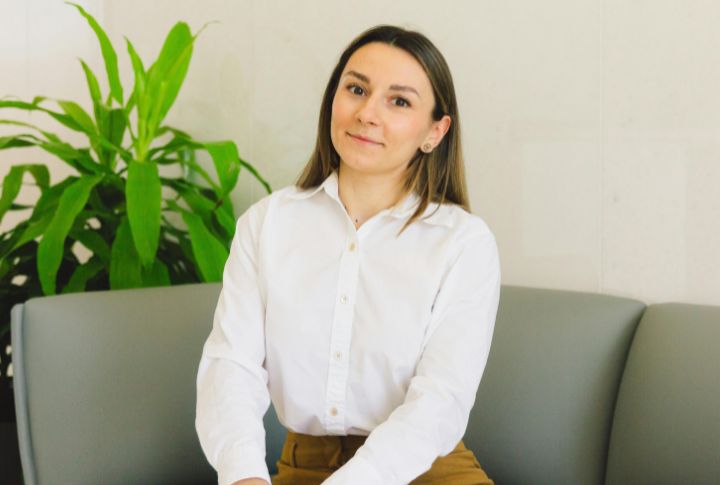
Nobody warns you that wardrobe choices can cost you a job offer. Yet hiring managers notice everything, and your outfit creates instant impressions that stick. Some choices scream, “I’m serious about this opportunity,” while others whisper, “I couldn’t be bothered.” The difference between landing the role and getting ghosted usually starts with your closet. So, first, let’s look at the ten things you shouldn’t wear to a job interview.
Flip-Flops
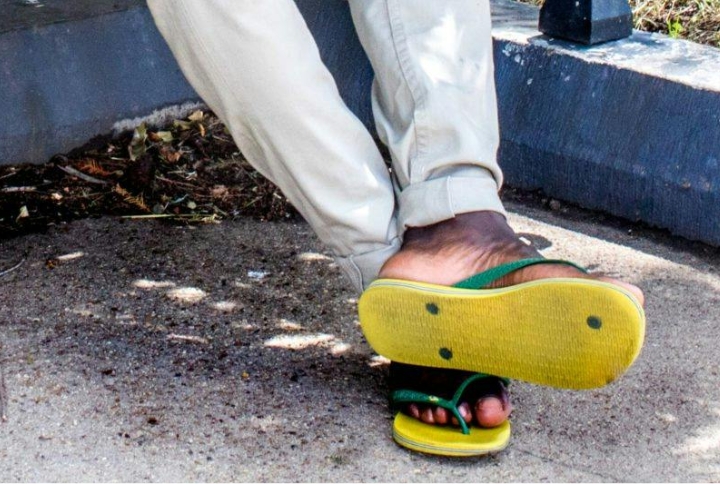
Flip-flops are perfect for summer days, but they won’t get you hired. Showing up in slippers like this tells hiring managers you’re not taking things seriously. Even startups and small organizations expect interview-appropriate footwear these days.
Oversized Hoodies Or Sweatshirts
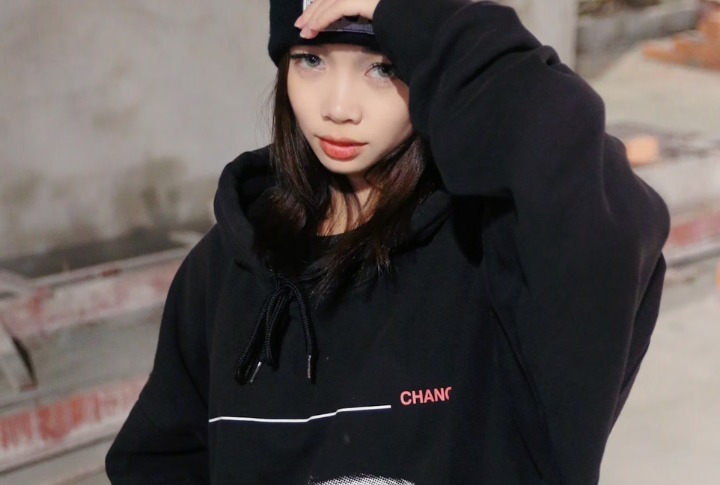
Wear a ratty hoodie to your interview and watch your chances evaporate. Oversized sweatshirts with visible wear tell employers you couldn’t be bothered to prepare properly. That pilling fabric and stretched-out collar send all the wrong messages about your workplace readiness.
Extremely High Stilettos
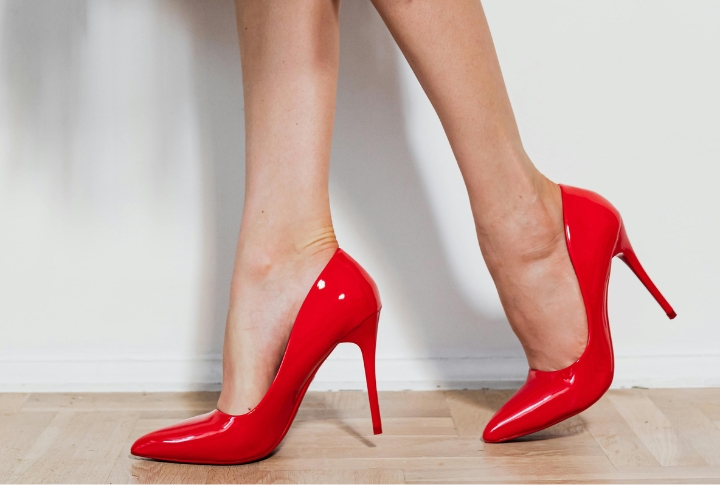
Nothing screams “didn’t think this through” like struggling to walk in your own shoes. Extreme stilettos make you look unsteady, literally and figuratively. Hiring managers notice when you’re shifting weight constantly or clutching furniture for support. The visual message contradicts the professional competence you’re trying to convey.
Graphic T-Shirts With Logos Or Slogans
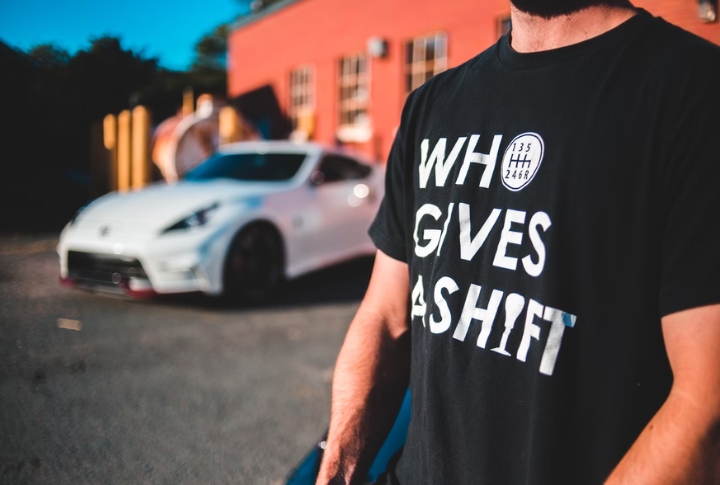
That vintage band tee might be your favorite, but it’s not interview-friendly. Graphic shirts distract from what matters—your skills and experience. Employers see logos and slogans as signs you’re not serious about the job. Try to save the statement pieces for after you’re hired.
Heavily Distressed Jeans
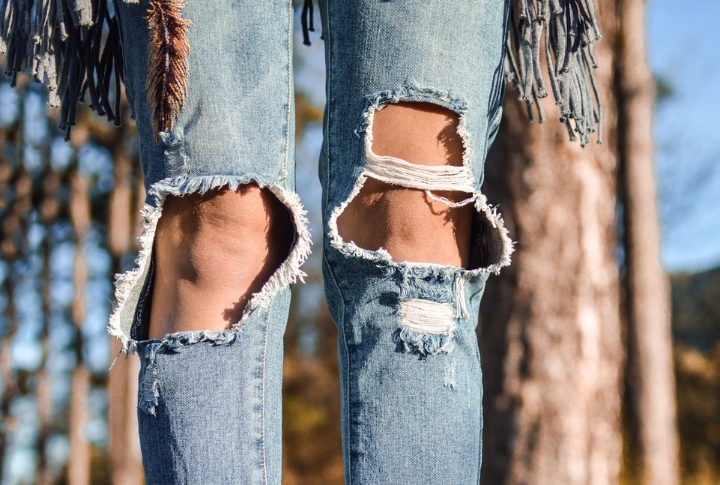
Sure, everyone wears jeans now. However, there’s a significant difference between regular denim and the ripped kind. Those tears might look cool, yet they signal poor judgment to employers. Want the job? Go for clean and dark, well-fitted jeans instead.
Leggings
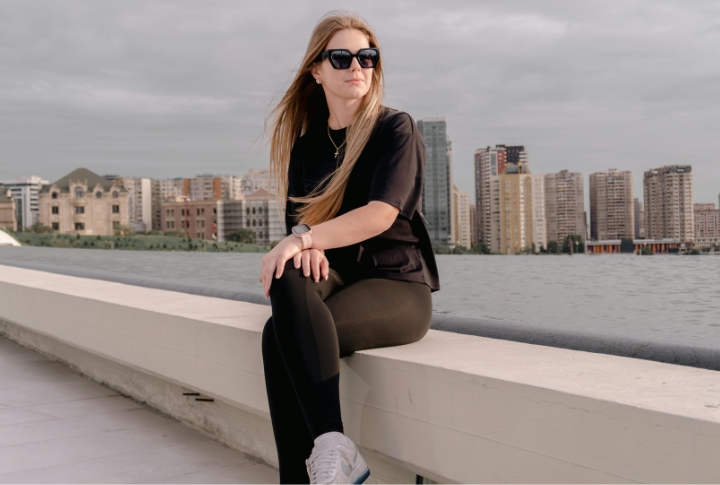
Pieces like leggings and yoga pants fall under athletic gear, not professional attire. Even if they’re trendy or comfortable, they send the wrong message in a professional setting. You need to show that you’re ready for business, not the gym.
Crop Tops Or Midriff-Baring Tops
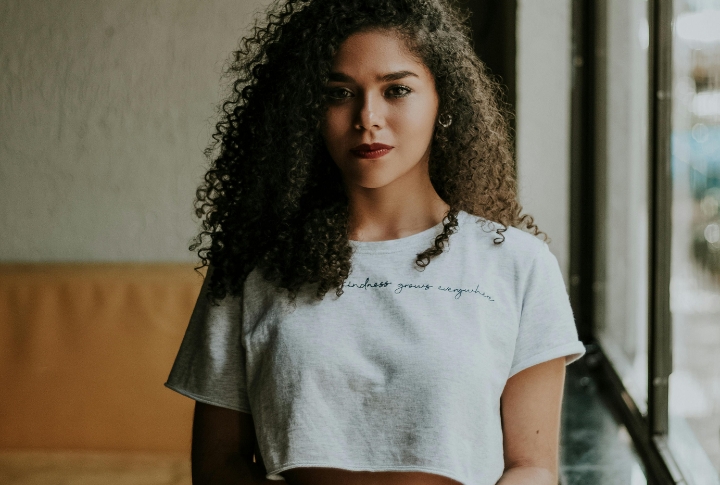
Exposed midriffs immediately shift attention away from what you’re saying. Interviewers start questioning your understanding of workplace norms instead of listening to your answers. Most corporate environments have explicit policies against midriff exposure, which simply says you haven’t researched basic company culture expectations.
Loungewear
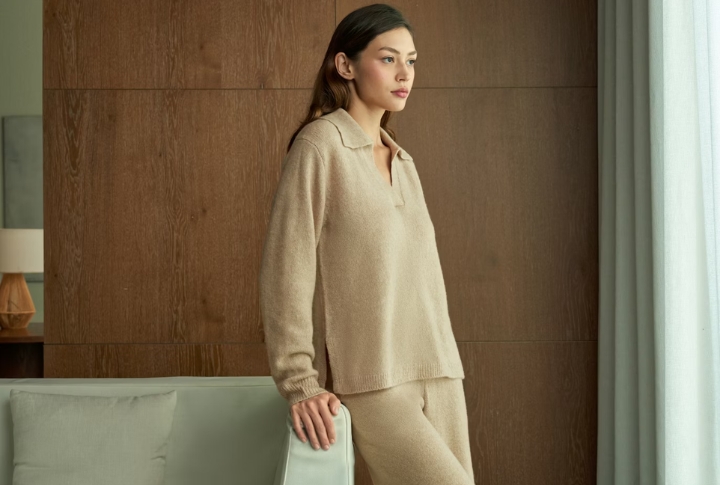
Loungewear immediately raises red flags about your professionalism. Pyjama-style clothing tells employers you don’t respect the process or understand professional standards. This happens constantly with remote interviews, where people prioritize comfort over presentation. Hiring managers agree: proper attire matters whether you’re on Zoom or not.
Hats Or Caps Worn Indoors
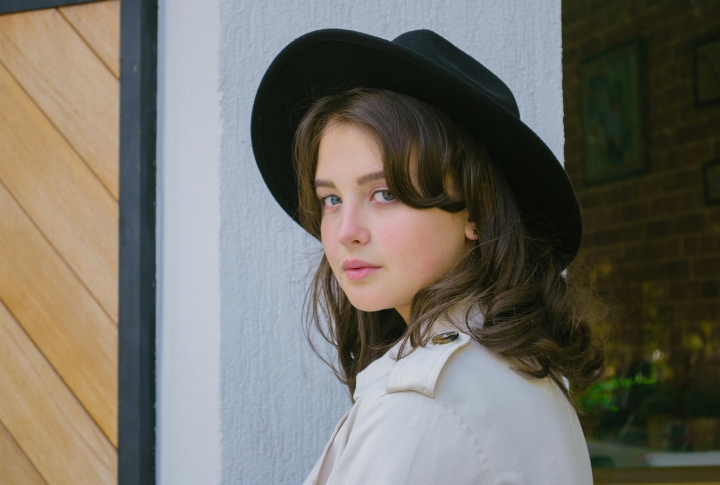
Take off your hat before stepping into an interview. Wearing caps or casual hats indoors shows disrespect in professional settings. This etiquette rule has been around forever, and employers still care about it. Religious or medical head coverings are perfectly fine; however, your baseball cap must remain outside.
Excessively Shiny Or Metallic Fabrics
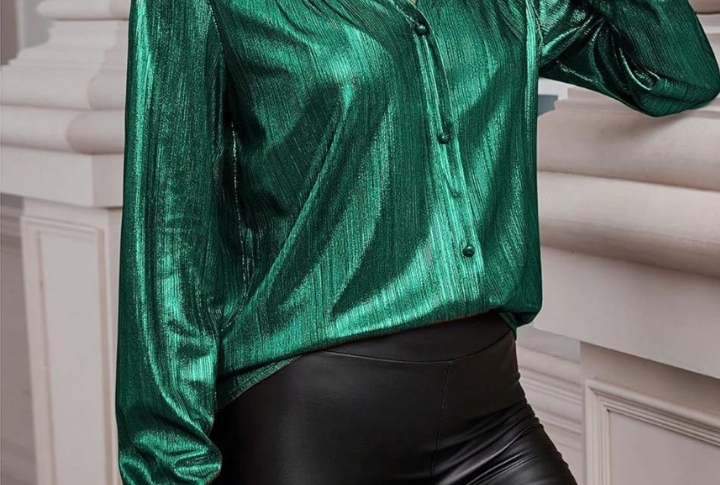
Shiny, metallic fabrics distract hiring managers from what actually matters—your skills and experience. When your outfit sparkles under office lights, nobody’s listening to your answers. Those disco-style materials pull focus away from your qualifications.
Now that we’ve covered the outfits to avoid, let’s shift to the ones that work in your favor. The next 10 choices are the styles that keep you looking sharp and professional.
Navy Two-Button Suit

Navy suits strike the perfect balance between authoritative and approachable. A well-tailored two-button style works across industries, from conservative law firms to creative startups. The versatility allows easy pairing with different shirts and accessories while projecting the polished image that puts interviewers at ease immediately.
Pencil Skirt

Go with a pencil skirt that hits at or below the knee for appropriate coverage. Black or navy colors give you timeless business appeal that works everywhere. You can also match it with a tailored jacket or blouse to complete your outfit. It’s a reliable choice that communicates both style and professionalism.
Closed-Toe Low-Heel Pumps
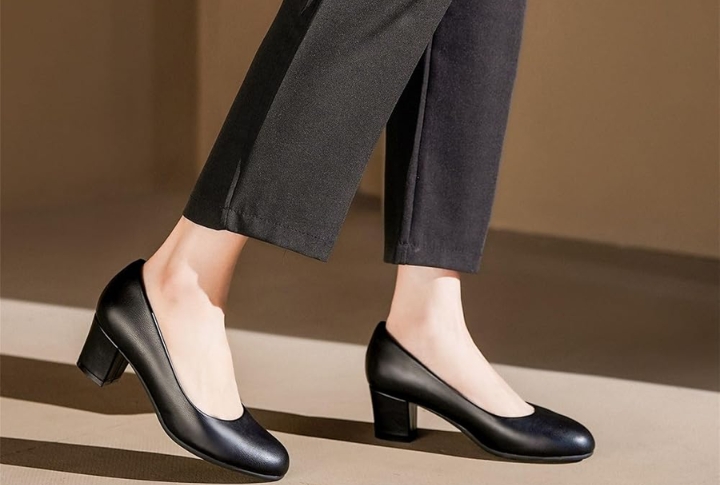
Looking professional shouldn’t mean limping through your interview. That’s where closed-toe low-heel pumps shine. This style provides the sophisticated look hiring managers expect while keeping your feet happy during those nerve-wracking hours. Choose neutral shades, and you’ve got a versatile foundation for any outfit.
Crisp White Button-Down Shirt Or Blouse
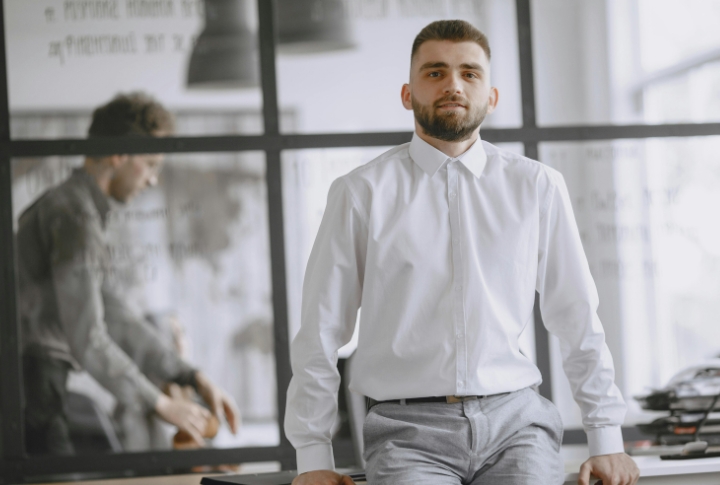
White button-downs work because they’re predictable in the best way. Interviewers see someone who understands dress codes without overthinking it. Make sure yours fits well at the neck and shoulders—too tight looks uncomfortable, too loose looks sloppy. When your basics are solid, everything else about your presentation falls into place more easily.
Dark Tailored Trousers
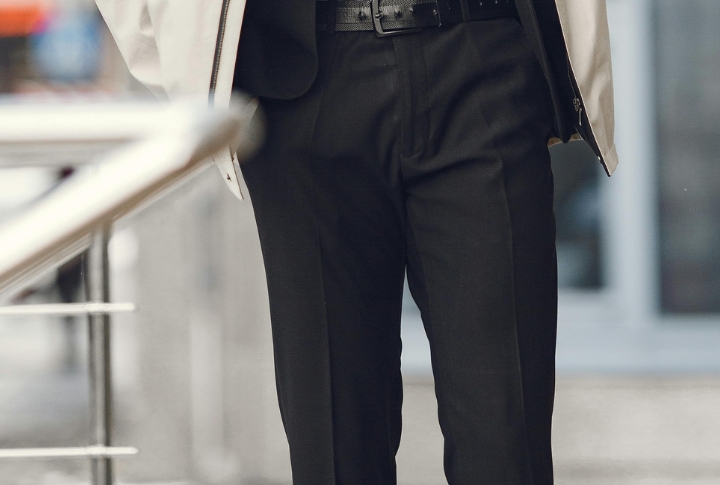
Tailored trousers in dark shades like navy, charcoal, or black are perfect for crisp white button-downs. In fact, these versatile classics match almost any top while looking appropriately professional. They transition between casual and formal settings smoothly, especially when fitted well and pressed neatly.
Polished Leather Dress Shoes
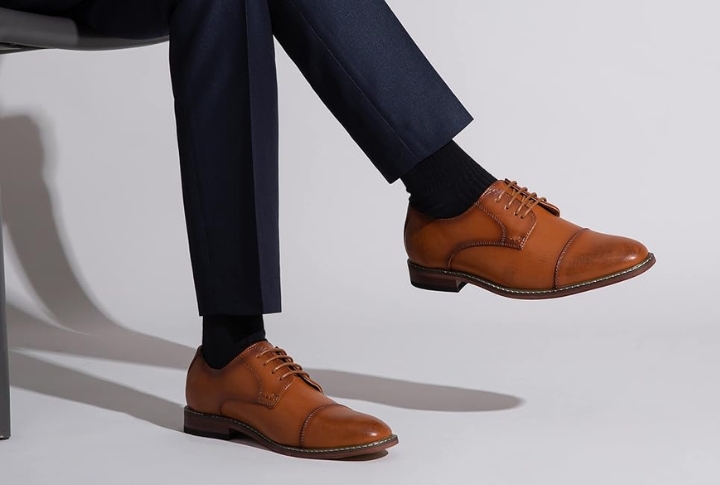
Your shoes speak before you do. A clean, well-maintained pair of leather dress shoes instantly signals that you care about the details. Whether you go with classic Oxfords or sleek loafers, polished leather adds structure and confidence to your overall look. Stick with neutral tones like black or brown, and you’ll walk in ready to impress.
Conservative Silk Tie
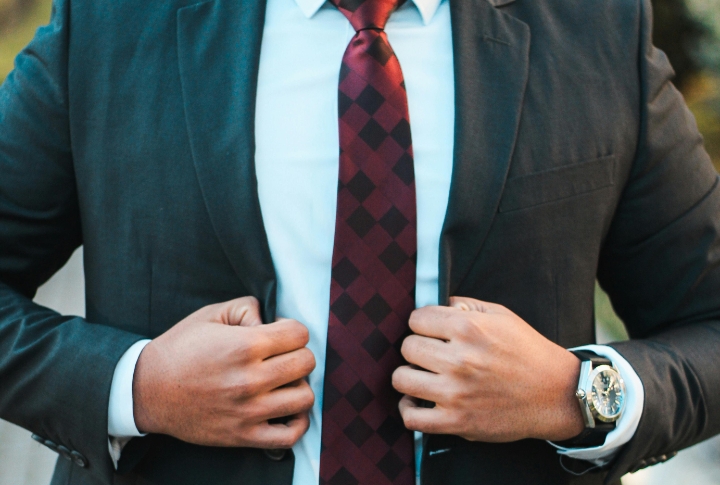
Too many job seekers sabotage their interview chances with flashy, attention-grabbing ties that scream “look at me” rather than “hire me.” The winning approach? A conservative silk tie in classic navy or burgundy that coordinates smoothly with your suit, featuring either a solid finish or a subtle pattern
Leather Belt
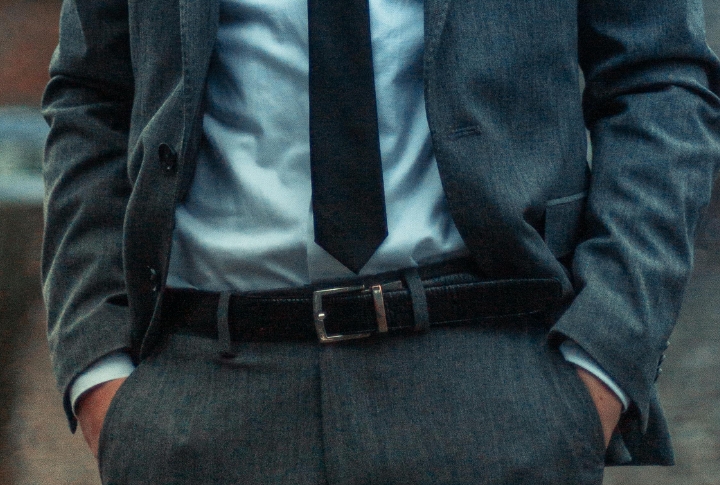
Every sharp outfit starts with clean lines—and a classic leather belt delivers exactly that. It ties your entire look together. When your belt matches your shoes, you’ve created that right, intentional vibe interviewers notice. Leather belts go with everything, from formal suits to business casual.
Minimal Wristwatch
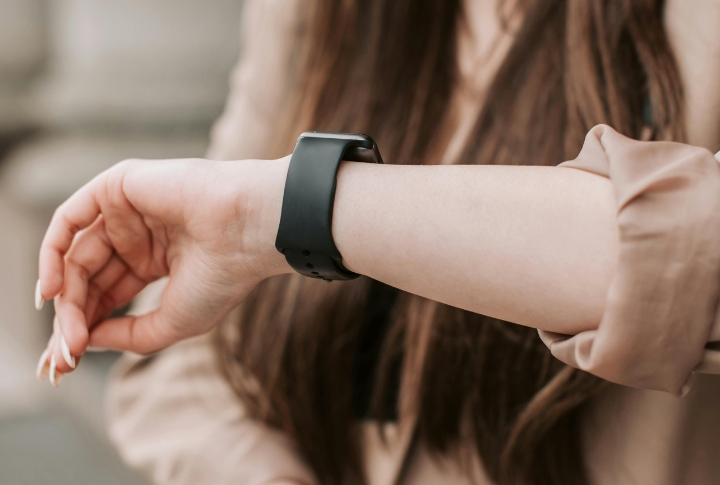
The interview dilemma of checking time discreetly has a timeless solution: the minimal wristwatch. This practical accessory eliminates the unprofessional habit of glancing at your phone while seamlessly complementing your professional attire. By choosing a simple, classic timepiece, you’ll convey refinement without overshadowing your interview appearance.
Blazer

A blazer instantly enhances any interview outfit. It goes well with trousers, skirts, and dresses, adding structure and confidence. Moreover, a well-fitted piece can enhance your posture and overall presence, helping you make a solid impression. Select classic navy or black for a versatile look.

